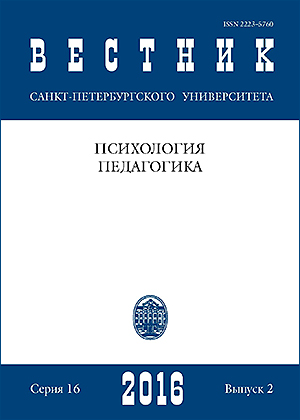Мотивация онлайн-гейминга в контексте теории самодетерминации (SDT)
Аннотация
В статье представлен обзор современных подходов к исследованию мотивации игроков в компьютерные игры, а также описание эмпирического исследования, посвященного измерению мотивации онлайн-гейминга с помощью «Шкалы мотивации гейминга» (GAMS). Несмотря на проблемы отдельных шкал, мотивационные профили выборок игроков из разных стран по этой методике получились сходными. Внутренняя мотивация является ведущей для игровой компьютерной деятельности, независимо от возраста игроков, географического региона, в котором они живут, а также от содержания игры.
Ключевые слова:
мотивация, мотивы, онлайн-гейминг, культура, теория самодетерминации
Скачивания
Библиографические ссылки
References
Загрузки
Опубликован
Как цитировать
Выпуск
Раздел
Лицензия
Статьи журнала «Вестник Санкт-Петербургского университета. Психология» находятся в открытом доступе и распространяются в соответствии с условиями Лицензионного Договора с Санкт-Петербургским государственным университетом, который бесплатно предоставляет авторам неограниченное распространение и самостоятельное архивирование.




